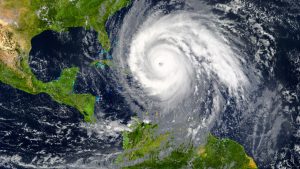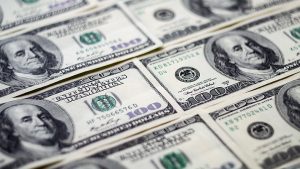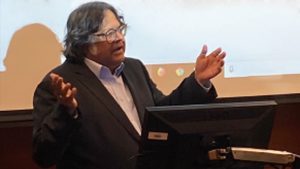The words of Carl Bernstein and Bob Woodward’s secret source Deep Throat to “follow the money” in their Watergate investigation resonate today with multiple law enforcement agencies as they try to uncover money-laundering schemes and terrorist financing.
 John Zdanowicz |
For sixteen years, John Zdanowicz, professor, Department of Finance, in the college, has worked with data the federal government uses to calculate the balance of trade. He’s been taking that data, which the government releases every month, and analyzing each transaction to measure the amount of money moving in and out of the country, noting anomalies.
Now, he has applied that information to help banks comply with new federal regulations that require them to monitor the price of internationally-traded items they’re financing—one of the government’s many efforts to curb money laundering and terrorist financing.
“Having banks support both ends of international transactions facilitates trade, but it imposes new burdens on those banks now that they have to monitor the pricing,” said Zdanowicz, who was a principal investigator on a $2 million research grant awarded to Florida International University by the U.S. Treasury Department to study transfer pricing and money-laundering issues. “According to the regulations, a bank has to review documents and check on market prices based on ‘general knowledge.’”
International Price Profiling System streamlines process.
Considering that there are more than six million possible combinations of products and countries—all with different pricing structures—the complexity is overwhelming and the notion of “general knowledge,” highly unreasonable. However, Zdanowicz has developed a tool—called the International Price Profiling System—that makes the task easy.
“The software includes more than 26,000 commodity code numbers in rows and 232 countries in columns, resulting in more than 6.2 million combinations,” he said. “The bank can enter the product, country, and price and the system will evaluate the price and calculate a ‘risk index.’”
“As regulators ask more questions, banks are in a predicament because they will know some products well, but certainly not all of them,” said Pat Roth, executive director of the Florida International Bankers Association (FIBA), Inc. “The software provides a quick, cost-effective way to check on those that are unfamiliar.”
FIBA recently sponsored a presentation by Zdanowicz titled, “Trade–Based Money Laundering and Terrorist Financing: Verifying Product Prices in International Trade Transactions.” The event drew more than 100 people to the FIBA meeting in Coral Gables, with an additional twenty-five individuals from across North America joining online.
“It was valuable for the audience to learn about this solution,” Roth said. “It is also a recognition of the work that Zdanowicz has done in cooperation with government agencies. It shows that Florida is a partner in the fight against money laundering and terrorist financing. The software is timely, practical, and useful.”
Zdanowicz also made the presentation recently on his research and demonstrated the software at American Express’ headquarters in New York, overlooking Ground Zero, to about 400 people—mostly regulators and law enforcement people.
“Government agencies, the IRS, drug enforcement, and customs professionals are all trying to stop illegal transactions, which move money for the perpetrators through trade,” he said. “And the concern goes beyond borders, since foreign governments are worried about capital flight and money laundering, as are entities such as the World Bank, International Monetary Fund, and the United Nations, which are concerned about money designated for foreign development that is squandered or moved out of the country.”




